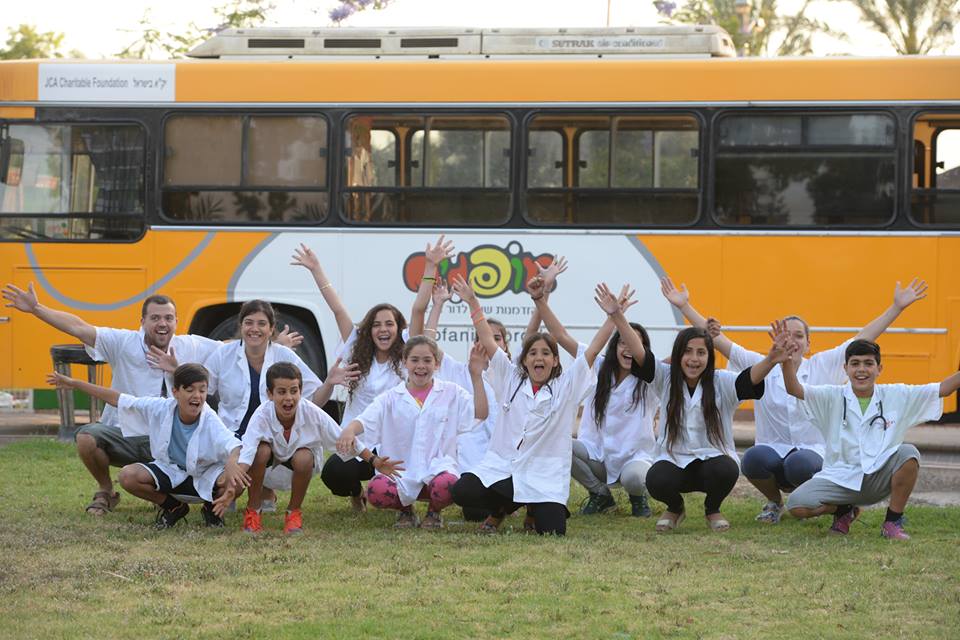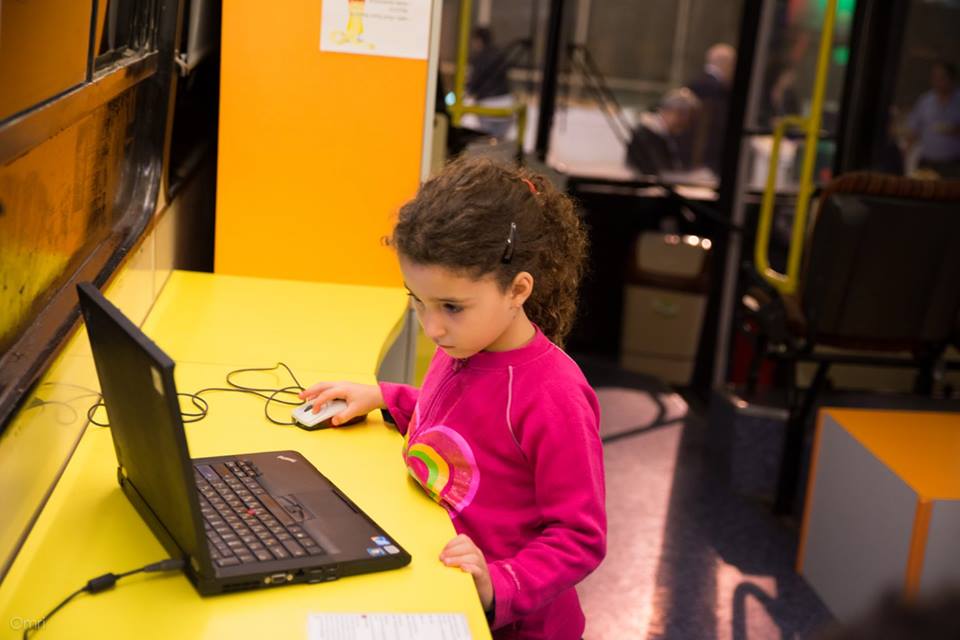Quality education is one of the most important foundations upon which people build their futures. And yet, in Israel, like in many other countries, there is an educational gap between rural and metropolitan communities. According to the Israeli Central Bureau of Statistics, 83 percent of children who live in Tel Aviv and the surrounding area matriculate, compared to only 62 percent of children who live in the periphery.
Enter Ofanim, a non-profit organization established in 2004 to bring education to the places that need it the most. Using buses that have been retrofitted into mobile study labs, Ofanim runs educational enrichment programs for hundreds of children living in Israel’s northern and southern regions.
In these classrooms on wheels, instructors are paired together and teach small groups of children ranging from third to sixth grade about science and technology. During the academic year 2014-2015, more than 1,200 children took part in the program covering a broad range of subjects, including medicine, comics, computerized animation and robotics.
SEE ALSO: Israeli High-Tech Method Revolutionizing US Education?
Funded by Israeli and US donors, including Friends of Ofanim, Bank Hapoalim, The Ted Arison Family Foundation, Applied Materials, and Israeli telecommunications company Bezeq, Ofanim maintains an annual budget of approximately $1.5 million to run six buses and a fleet of vans that transport the equipment from one town to another.
Children who have participated in the program have described it as “a small place with big dreams,” and several independent evaluation reports show that the program positively affects children’s self-image, self-confidence and motivation to succeed. Their work has had such a wide-reaching impact that the Israeli Ministry of Welfare granted the organization its Excellence Award in 2009.
Most of the instructors are undergraduate and graduate students who “go through a strict and demanding process of simulations and preparations before being selected,” Adir Kan, CEO of Ofanim, tells NoCamels. “They are socially oriented and very dedicated to the children and our cause.”
Ofanim was founded by Israeli entrepreneur Haim Dahan, who grew up in Neighborhood D, a deprived neighborhood in the Southern city of Be’er Sheva. While raising him and his nine siblings, his mother was a cook at a local community center. There she met Madeline Bergman, the wife of Prof. Samuel Bergman, the founder of the first computer science department at Ben Gurion University. When Dahan’s mother invited the professor and his wife for lunch, Prof. Bergman asked Dahan if he knew anything about computers. Dahan, who was in his first year of high school, replied that he had no clue.
Sign up for our free weekly newsletter
Subscribe“A sense of direction”
Soon thereafter, the professor invited Dahan into the university and provided him with the tools needed to acquire a basic education in computers. This experience forever changed Dahan’s life; it opened up doors that may have been closed had he not met the professor. According to Dahan, Prof. Bergman is “a person who gave me a sense of direction, and who ignited my imagination and hope for a better future.” As a result of Bergman’s influence, Dahan wanted to give other children the opportunity that he was given.
SEE ALSO: Education Is The Name Of The Game
Now in its 11th year, Ofanim is experimenting with a new educational model recommended by Prof. Gad Yair, head of the education department at the Hebrew University. “There are three main changes we are going to implement into the organization: Accompanying children from third grade until high school, integrating children’s parents and teachers into the program, and including additional programs for building up personal development skills such as debate and ‘out of the box’ thinking,” says Kan.
… More like ‘out of the bus’ thinking in this case!
Photos: Courtesy
Related posts

Rehabilitation Nation: Israeli Innovation On Road To Healing

Israeli High-Tech Sector 'Still Good' Despite Year Of War







Facebook comments